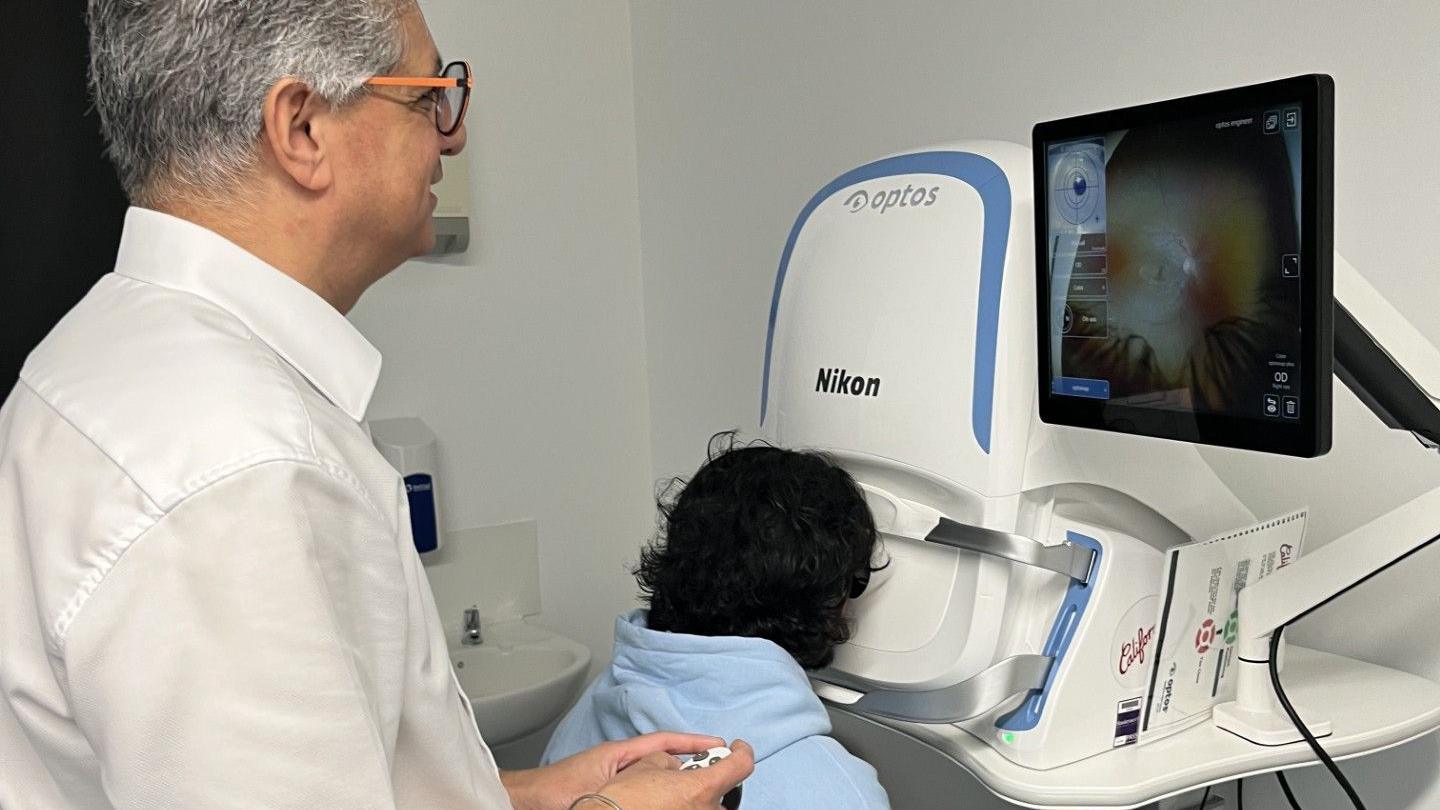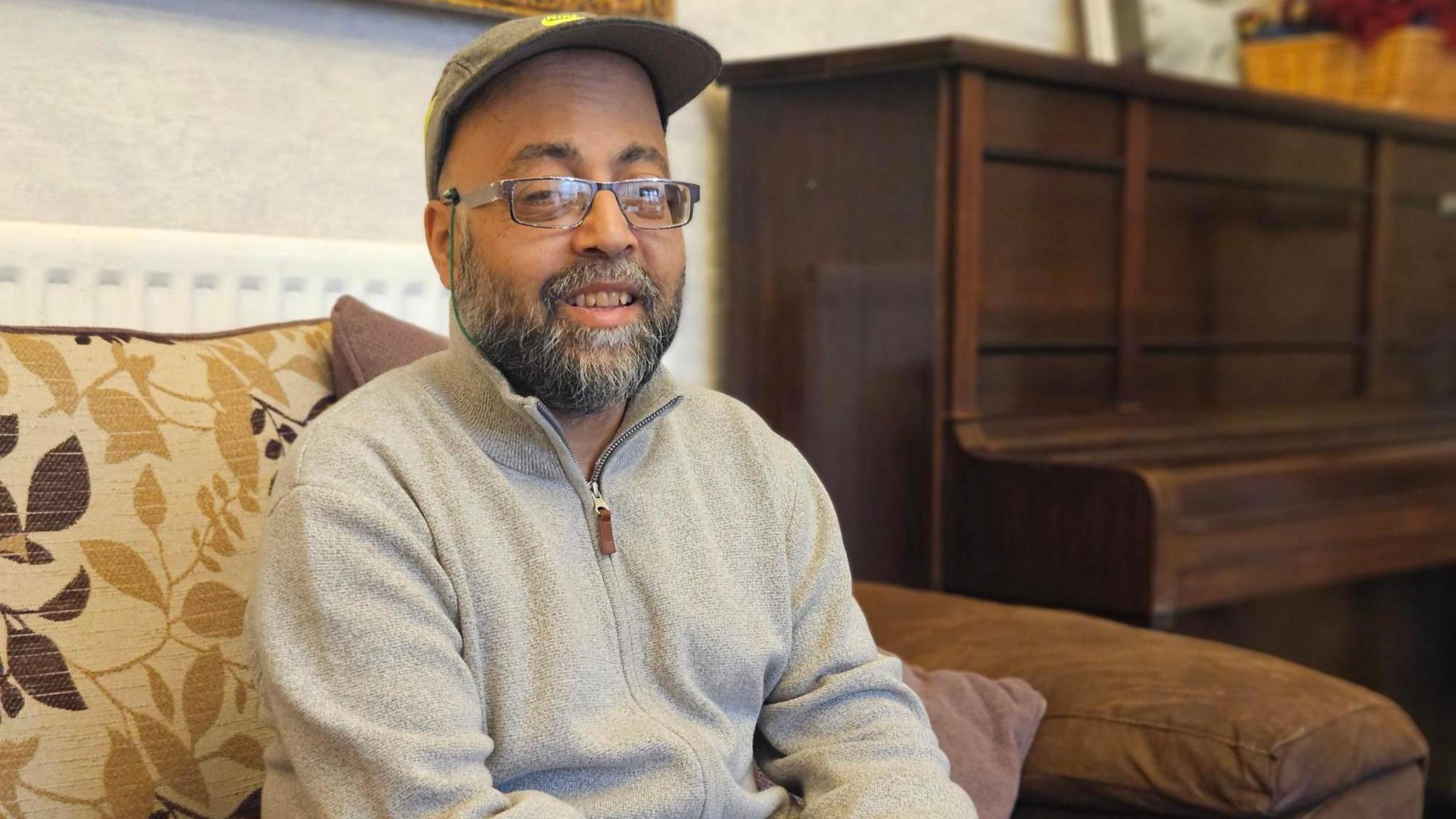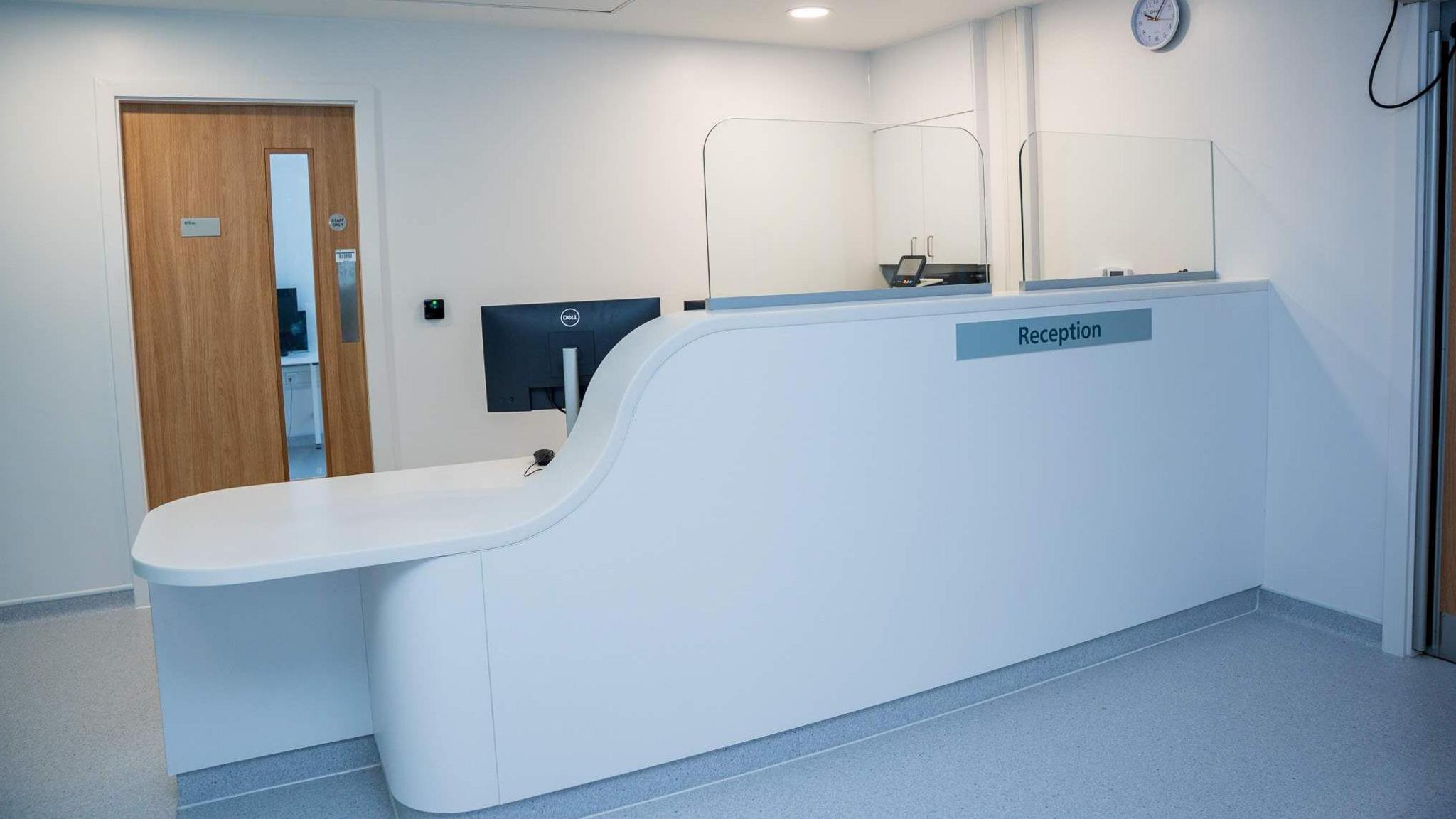Specialist eye screening centre opens in Bradford

The centre has equipment including a retinal scanner, allowing doctors to identify issues not normally visible
- Published
A new specialist NHS eye screening centre has officially opened in Bradford.
The Community Specialist Eye Screening Centre is based at Shipley's Windhill Green Medical Centre and will be used to help sickle cell, thalassaemia and rare inherited anaemia patients.
The unit is set to run drop-in eye clinics three days a week along with appointments, Bradford Teaching Hospitals NHS Foundation Trust said.
Dr Clare Samuelson, a consultant haematologist for the trust, described the addition of the centre as "excellent news" for the city.
Around 17,000 people in the UK are affected by sickle cell disorder (SCD), a disease when blood vessels become blocked by misshapen red cells.
SCD patients are at risk of developing sickle cell retinopathy – an eye condition which can lead to blindness if not picked up and treated early.
Tahir Mahmood, 55, has thalassaemia and regularly visits Bradford Royal Infirmary (BRI) for treatment.
"There's also a lot of pressure on services nowadays, so having everything at the BRI would mean waiting times would be quite long," he said.
"In some cases, especially with eye issues, they can become quite drastic very quickly, so in that sort of situation you want to get to a place as quickly as possible."

Tahir Mahmood has his eyes screened regularly due to thalassaemia
He added: "It's really good because it means you get seen quicker, your appointments are quicker, the referrals back to your GP or hospital are quicker and you get results back a lot sooner."
The centre has equipment including a retinal scanner, allowing doctors to identify issues not normally visible.
Dr Samuelson added: "It's vital that abnormalities are picked up and acted on early as otherwise there is a real risk of losing sight.
"We know that sickle cell and thalassemia are really difficult conditions to live with - they're lifelong serious blood disorders -and it's absolutely right that we're trying to do whatever we can to support patients."
Get in touch
Tell us which stories we should cover in Yorkshire
Listen to highlights from West Yorkshire on BBC Sounds, catch up with the latest episode of Look North.
Related topics
Similar stories
- Published15 August
